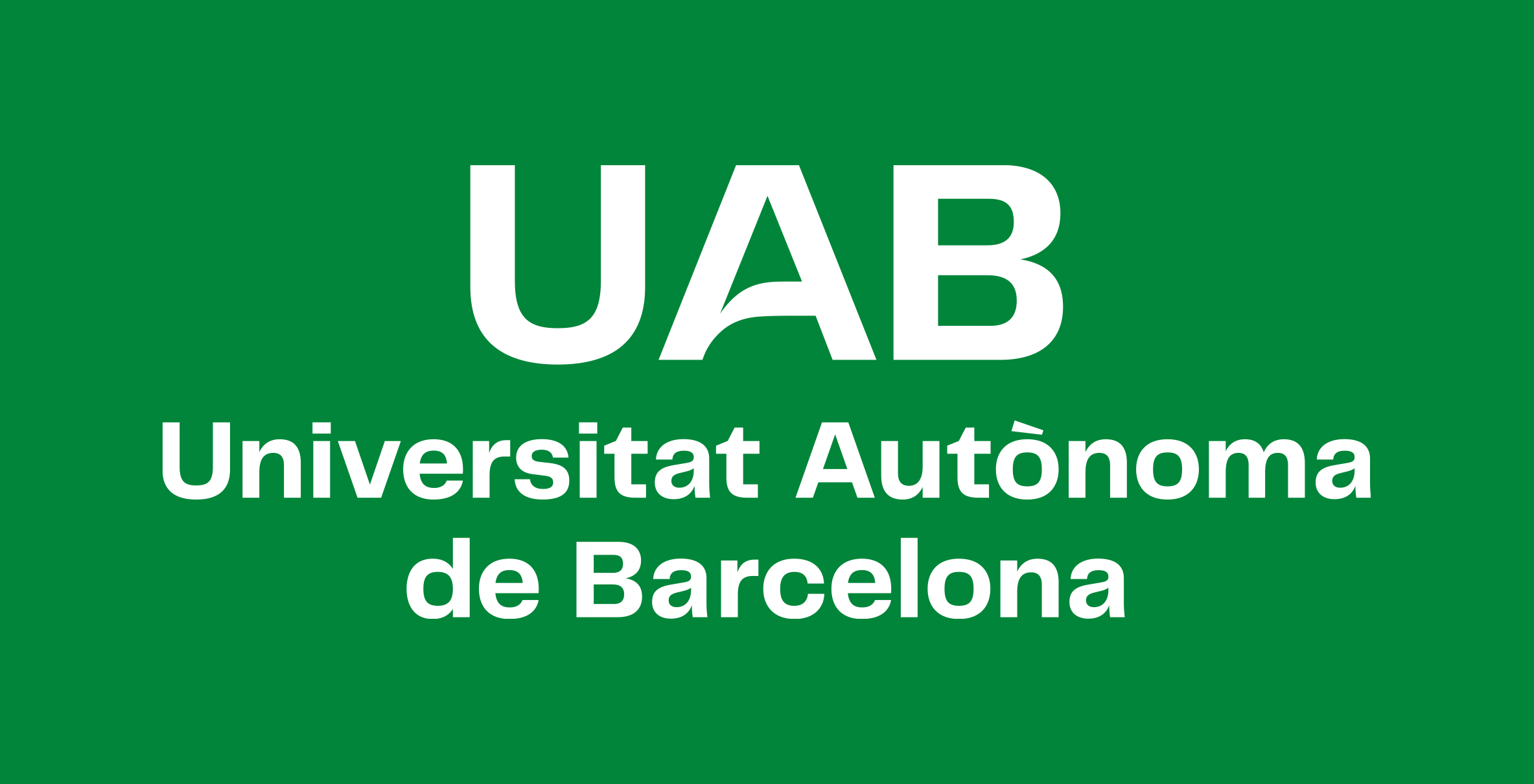- UAB Microcredential
- Code: 5037/1
- 1st edition
- Modality: Blended
- Credits: 2 ECTS
- Start date: 19/02/2025
- Finish date: 31/07/2025
- Places: 60
- Orientation: Professional
- Price: 400 €
-
Special price 120 €
Group of application:
- Teaching language: Catalan (90%), Spanish (10%)
- Location: Grup 1: Hospital Universitari Parc Taulí; Grup 2: Parc Sanitari Sant Joan de Deu
To provide mental health professionals with specific knowledge, skills and competences related to innovative digital technologies for monitoring and detecting, with non-invasive biomarkers, alterations that put mental health at risk or are associated with mental disorders and for the application of digital interventions in the field of mental health.
The theoretical part will introduce and justify the concept and use of multivariable biomarker/s in mental health. The idea is to provide and make available to the student a methodology that allows the assessment of mental health in a non-invasive, quantitative, continuous, easy to apply and in accordance with the usual standards in clinical practice (gold standard). This part will also cover the principles of measurement of various types of biosensors, as well as their characteristics and limitations.
As an introduction to the practical part, some proven success stories of the methodology explained will be explained. This is the case, for example, of measures of induced and chronic stress, measures of depression, and results obtained in the study of ADHD.
To carry out the practical part, the student will work with medical-grade electronic devices to record physiological signals such as ECG, PPG, EDA, etc., and also with some wearable devices of different characteristics that, a priori, allow these same signals to be recorded. At this point, the idea is that the student learns to observe and assess the differences between one device and another in order to determine the suitability and/or limitations of one device or another.
From the recorded signals, the student will use ad hoc algorithms to extract the variables of interest for the measurement he/she wants to perform. In this section, the student will practice the extraction of several variables of interest (HRV could be an example), using different parameters in the algorithms to observe how the results may differ depending, for example, on the segmentation, the width of the time interval, the interpolation form, etc.
Finally, the student will be asked to practice parameter extraction on real patients with an application (app) linked to a wearable device, to follow up between visits and to find out and report on the evolution during this period, unfriendly circumstances and/or environments, and the suitability of one therapy or the other.
This study programmes two teaching groups:
Group 1 - Hospital Universitari Parc Taulí
REGISTRATION CLOSED
Group 2 - Parc Sanitari Sant Joan de Deu
Dates: From April 23rd to July 31st, 2025
REGISTRATION OPEN
The theoretical part will introduce and justify the concept and use of multivariable biomarker/s in mental health. The idea is to provide and make available to the student a methodology that allows the assessment of mental health in a non-invasive, quantitative, continuous, easy to apply and in accordance with the usual standards in clinical practice (gold standard). This part will also cover the principles of measurement of various types of biosensors, as well as their characteristics and limitations.
As an introduction to the practical part, some proven success stories of the methodology explained will be explained. This is the case, for example, of measures of induced and chronic stress, measures of depression, and results obtained in the study of ADHD.
To carry out the practical part, the student will work with medical-grade electronic devices to record physiological signals such as ECG, PPG, EDA, etc., and also with some wearable devices of different characteristics that, a priori, allow these same signals to be recorded. At this point, the idea is that the student learns to observe and assess the differences between one device and another in order to determine the suitability and/or limitations of one device or another.
From the recorded signals, the student will use ad hoc algorithms to extract the variables of interest for the measurement he/she wants to perform. In this section, the student will practice the extraction of several variables of interest (HRV could be an example), using different parameters in the algorithms to observe how the results may differ depending, for example, on the segmentation, the width of the time interval, the interpolation form, etc.
Finally, the student will be asked to practice parameter extraction on real patients with an application (app) linked to a wearable device, to follow up between visits and to find out and report on the evolution during this period, unfriendly circumstances and/or environments, and the suitability of one therapy or the other.
This study programmes two teaching groups:
Group 1 - Hospital Universitari Parc Taulí
REGISTRATION CLOSED
Group 2 - Parc Sanitari Sant Joan de Deu
Dates: From April 23rd to July 31st, 2025
REGISTRATION OPEN
Scholarships and financial aid
Chek all the information on the possibilities for grants and scholarships in the page for UAB financial aids, grants and calls.
Coordinating centres
Escuela de Formación Permanente
Collaborating centres
Instituto Universitario Fundación Parc Taulí
Contact
Jordi Aguilo Llobet
Phone: 638292992

